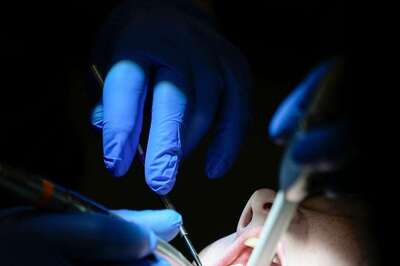
views
Lactose is a type of milk sugar found in dairy products and many processed or prepared foods like sauces, soups, and breakfast cereals too. People with lactose intolerance are unable to digest such food items. Lactose is typically broken down by lactase, an enzyme in the small intestine and many people around the world are unable to produce lactase which results in indigestion.
If consumed, products that contain lactose can trigger adverse side effects like bloating, stomach pain, and diarrhea in lactose-intolerant people.
Fortunately, regular intake of a lactose-free diet can reduce health problems for those with this condition. At the same time some may also choose to adopt a lactose-free diet to decrease their consumption of dairy products.
Vegetables: Broccoli, collard greens, onions, garlic, kale, spinach, arugula, carrots and zucchini
Poultry: Chicken, turkey, goose and duck
Lactose-free milk and yogurts: almond milk yoghurt, coconut yogurt, soy yogurt, cashew yogurt, lactose-free milk, rice milk, almond milk, oat milk, coconut milk, cashew milk, hemp milk
Fruits: mangoes, berries, grapes, apples, oranges, peaches, plums and pineapples
Meat: beef, lamb, pork, veal
Soy foods: miso, tempeh, and tofu
Seafood: salmon, lobster, clams, mackerel, anchovies, tuna and sardines
Whole grains: barley, buckwheat, quinoa, couscous, wheat and oats
Nuts: walnuts, hazelnuts, almonds, pistachios, cashews and Brazil nuts
Legumes: Kidney beans (rajma), pinto beans, black beans, lentils and chickpeas
Seeds: chia seeds, flax seeds, sunflower seeds, pumpkin seeds
Healthy fats: coconut oil, olive oil, sesame oil and avocados.
Read all the Latest News, Breaking News and Assembly Elections Live Updates here.


















Comments
0 comment